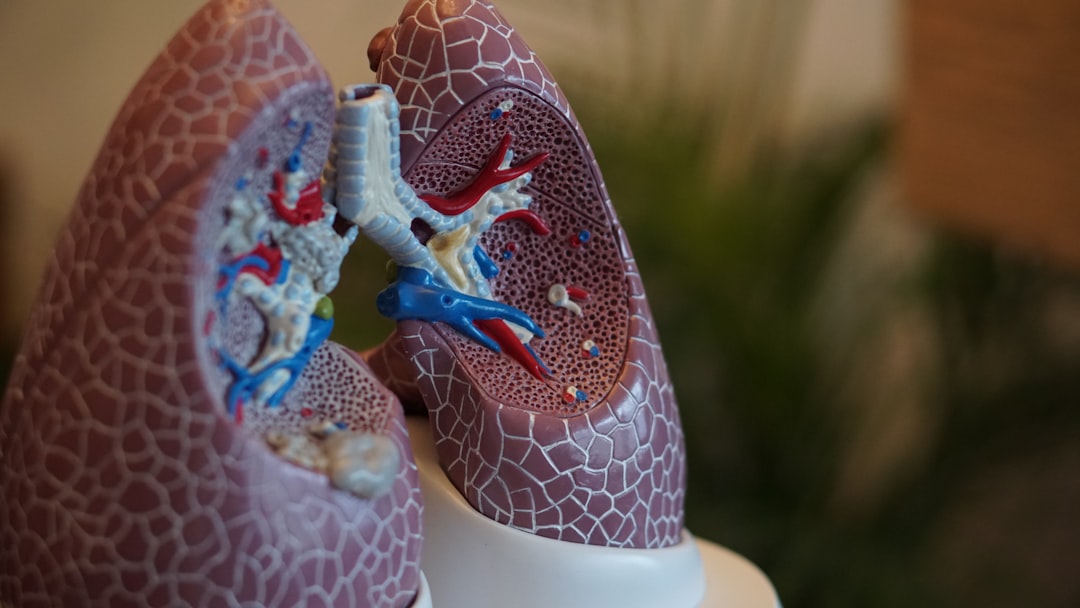The 3 Best Natural Supplements for Muscle, Bone, and Joint Health

Photo by David Hofmann on Unsplash
This article contains affiliate links, which means if you choose to click on one and make a purchase based on my recommendation, I will receive a commission. This is at no extra cost to you!
I often get asked by clients if there is anything they can take for muscle and joint pain that isn’t something like Ibuprofen or Tylenol.
In real life, I can’t exactly answer that. Legally, massage therapists can’t tell clients to take certain things or not take certain things, as well as chiropractors at PTs; that is something that is left to doctors and dieticians.
However, for the sake of this blog, I can share with you what supplements are known to best help with muscle and joint pain, the research and evidence behind them, and then let you make that call on your own.
I’ll first say muscle pain and joint pain is usually a wide-ranging issue that often requires a multi-faceted approach when it comes to healing. Sometimes the answer lies in the muscles and joints, and treatment like a massage can relieve it, other times it’s the nervous system, and other times it’s something totally different.
Of all the supplements out there, here are my three favorites. These are all natural, low-risk, and have a substantial amount of evidence to back up their efficacy.
Of course, chat with your doctor before starting a new supplement regimen, especially if you are on any medications or have any other health conditions or concerns (see my legal disclaimer for more on that). Each section contains specific contraindications, which you can read more on as you go along!
Magnesium
Magnesium is one of the most commonly recommended supplements for muscle pain and cramps, and the evidence seems to be stacking up behind it.
While just taking a magnesium supplement won’t necessarily kill your pain ten minutes later, magnesium helps with pain basically by blocking your NMDA receptors, a glutamate receptor that plays a role in central sensitization. Central sensitization is when your neurons and the circuits in your brain and nervous system that relate to how you feel pain are over-stimulated. It plays a role in both acute and chronic pain.
Studies are showing a relationship between muscle pain, muscle tension, tension-type headaches, muscle strains and damage, and the release of pain mediators in the body to magnesium deficiency.
A few studies have shown that magnesium levels in people with frequent tension headaches tend to be lower and that supplementing magnesium can improve the condition. Tension headaches are characterized as headaches caused by muscle tension or pain and are often something that people seek out massage treatment for.
Some other studies have begun to show that supplementing magnesium also helps with menstrual cramps if taken on the day before menstruation starts as well as during the first two days for six consecutive cycles. Although these studies are newer and researchers recommend more studies be done to verify the results.
Magnesium itself is a mineral that is essential to the body’s function, and it naturally occurs in many foods such as pumpkin seeds, spinach, cashews, soy milk, dark chocolate, whole wheat, avocado, salmon, milk, eggs, and more.
However many people out there these days are pretty deficient in magnesium, and therefore supplementation could be beneficial. If you are deficient, it is important to talk to your doctor or dietician about exactly how deficient you may be and the best way to bring that up.
If you’re just looking to add a magnesium supplement, there are a few different types out there and it’s important to know what you’re looking for.
Have you ever taken a magnesium supplement and ended up with diarrhea the next day? (Yeah, that happened to me the first time I tried it, too.) That’s because I probably took magnesium sulfate, which is a fancy word for Epsom salt. It’s often dissolved in bath water to help soothe muscle cramps, but can be taken as a supplement to help with constipation, which I did not have at the time.
When I walked into the supplement section at Whole Foods and told the specialist about the, um, digestive issues magnesium had caused me in the past, she immediately recommended Magnesium Glycinate, which I’ve personally taken ever since.
Magnesium Glycinate is magnesium bound with the amino acid glycine and is known to boost magnesium levels in people who are deficient and is easily absorbed and tolerated by the body.
I take KAL Magnesium Glycinate as directed, typically at the end of the day as I'm prone to foot cramps after a long day of work!
Who should not take magnesium:
People with diabetes, kidney disease, intestinal disease, or heart disease should talk to their doctor before taking magnesium supplements. It may interact with diuretics, heart medications, or antibiotics. Magnesium in high doses can be toxic, so if you’re coming from a deficiency, talk to your doctor about how to safely increase your magnesium levels before self-diagnosing yourself on the internet.
Turmeric/Curcumin Extract
Turmeric is another natural supplement people commonly seek out for muscle and joint health.
Studies like this one have shown that turmeric supplementation before and after a half-marathon decreased inflammation and decreased markers for muscle damage preceding the race.
This meta-analysis looked at several studies from around the world on whether turmeric supplements helped treat arthritis pain and found favorable results. The studies that were analyzed were vetted based on criteria including bias. All the studies showed that turmeric supplements worked better than placebo and as good as the pain medicine control group. Although this analysis did note that most of the studies found were smaller in size, and recommended larger studies to fully determine the efficacy of treatment.
Another really good study that was done was this one.
Researchers looked at the use of curcumin (the active ingredient in turmeric) supplements against the common NSAID diclofenac on its effectiveness for treating knee osteoarthritis, as well as what side effects each treatment would produce. Of the 139 patients studied, curcumin supplements worked just as well as diclofenac and didn’t produce any of the negative side effects that the diclofenac group experienced.
One way to get turmeric into your system is through cooking with it. Commonly purchased as a spice or in its root form, you can easily add it to your meals. Although in this form, turmeric doesn’t have as much curcumin, the active ingredient you would want, so supplementing with turmeric extract or capsules may give you more of the good stuff you’re looking for.
When looking for turmeric supplements, it’s good to look for ones that contain Bioperine, which is an extract from black pepper that helps your body better absorb curcumin. I’d also recommend looking for supplements made in the USA, as there is some information floating around that some turmeric supplements from Bangladesh have been found to contain lead.
Nature’s Nutrition Turmeric Curcumin supplements are made in the US and contain Bioperine...
Another good supplement containing curcumin is Primal Harvest Primal Flex, which contains curcumin extract as well as vitamin C, Boswellia serrata, ashwagandha, and collagen, which I’ll get into next.
Who should not take turmeric:
Once again, if you’re unsure of a new supplement, talk to your doctor or healthcare provider first.
Turmeric supplements may interact with certain medications, including blood-thinning medications, drugs for diabetes, and drugs that reduce stomach acid, so if you’re on anything like that, chat with your doctor first.
Collagen
Collagen is the main structural ingredient in your body’s connective tissues and is made up of amino acids, which are built of carbon, hydrogen, and oxygen. Collagen makes up about 30% of the total proteins in your entire body. It’s the main building block in your muscles, ligaments, tendons, skin, and can also be found in your teeth, hair, corneas, and blood vessels.
Collagen is known to help cells bind to one another, and gives your skin its elasticity. As collagen production decreases with age, its reduction is also associated with wrinkles and sagging. People take collagen for skin health, as well as to increase bone density, build muscle, and reduce joint and muscle pain.
I started taking collagen in the winter a few years ago because of my insanely dry skin. After trying every topical out there, I had an esthetician recommend collagen to me, and even in the dead of the super dry Minnesota winter, my skin seemed to rebound. After that, I was hooked.
The studies are beginning to show that collagen helps not only with skin, but joint and muscle health as well. It has been recommended for joint and muscle pain, cartilage repair, muscle building, and bone density maintenance.
This study looked at college-aged athletes who were physically active and particularly hard on their joints. The 24-week placebo-controlled study showed that the athletes who took collagen showed an improvement in joint pain, implying that collagen may help maintain joint health as well as prevent joint degeneration in high-risk groups.
This study demonstrated that collagen peptides proved effective in managing the progression of osteoarthritis in patients diagnosed with knee osteoarthritis, as well as maintaining overall joint health.
There are a few different types of collagen supplements you can take, broken down into type I, II, or III, and come in either pill form or powder form. You can also get collagen in certain foods, such as bone-in fish, organ meats, or drinking bone broth collagen.
(I have this bone broth collagen in my kitchen, and throw it in smoothies, too...)
Type I is the most common type of collagen found in the body and is present in the bones, muscles, organs, hair, skin, and nails. Type II and III aren’t as prevalent in the body but are more commonly found in the bones, cartilage, and joints. Collagen peptides are primarily type I collagen.
I personally have tried both pill and powder forms of collagen and found to have better results with the powder form. The powder you can add to smoothies or coffee, so may take a little extra work, depending upon what kind of time and patience you have.
Vital Proteins brand uses pasture-raised and grass-fed sources, which provide a better quality product and are more environmentally friendly.
This is the type I use, which is a powder form of type I collagen, and can be easily added to coffee, smoothies, oatmeal, and more.
From the same brand, here is a pill-form of type II collagen, which is great for cartilage and joint health, and less time-consuming to take than the powder:
Who should not take collagen.
There isn’t much well-known information on if collagen reacts with certain drugs, but to be sure, talk to your doctor if you’re on any type of medication or have any other health conditions or concerns.
Since most collagen is produced from animal products, most supplements you find are not vegan, so if you’re on an animal-free diet, you may have to look for vegan collagen that’s made from certain yeasts and bacterias. Since I haven’t tried it myself, I won’t bother recommending a vegan collagen, so chat with your healthcare provider or dietician, or look up research and recommendations from somebody who has personally tried it.












If you enjoyed this article or recipe, please consider giving it a comment! It helps others discover my blog and recipes, and your comments always make my day :) Thank you for your support!
Your email address will not be published. Required fields are marked *